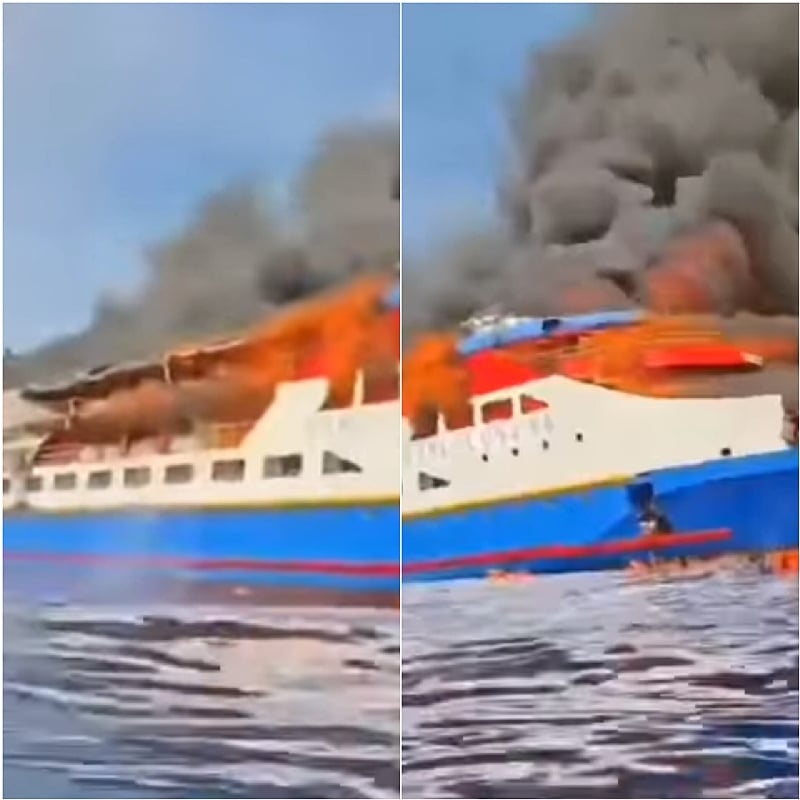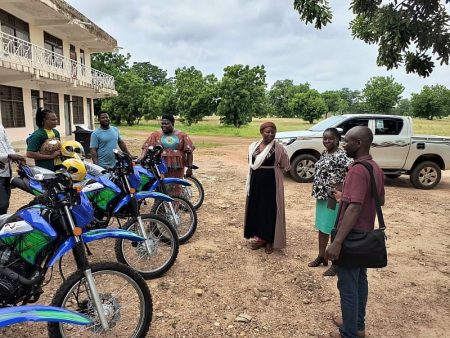The KM Barcelona VA Ferry Fire: A Tragedy at Sea
On July 20, 2025, a devastating fire engulfed the KM Barcelona VA ferry off the coast of Indonesia’s North Sulawesi province, transforming a routine inter-island journey into a desperate fight for survival. Carrying an estimated 280 passengers and crew, the vessel was en route from the Talaud Islands to Manado City when the blaze erupted near Talise Island. The fire spread rapidly through the ferry, trapping many passengers and forcing hundreds to jump into the turbulent waters in a frantic attempt to escape the inferno. The chaotic scene unfolded against the backdrop of a rapidly spreading fire, with thick plumes of black smoke billowing into the sky, a stark testament to the gravity of the situation.
A Massive Rescue Operation Unfolds
A large-scale rescue operation swung into action, involving the Indonesian Navy, the national search and rescue agency (Basarnas), and local fishermen who bravely responded to the unfolding crisis. These combined efforts resulted in the rescue of over 500 individuals, many of whom were plucked from the sea, exhausted and traumatized. Fishermen in their small boats played a crucial role, navigating the choppy waters and pulling survivors to safety, highlighting the invaluable contribution of local communities in times of crisis. The rescued passengers were transported to nearby ports and hospitals, where they received medical attention for injuries ranging from burns and smoke inhalation to the effects of prolonged exposure to the elements.
Loss of Life and Revised Casualty Figures
Despite the heroic rescue efforts, the tragedy claimed the lives of three passengers. Initial reports indicated five fatalities, creating further anguish and uncertainty for families anxiously awaiting news of their loved ones. However, authorities later revised the death toll to three after discovering that two passengers initially presumed dead were, in fact, alive and receiving treatment in hospitals. This correction, while bringing some measure of relief, underscored the challenges of accurate reporting amidst the chaos of a major disaster.
Investigating the Causes and Addressing Safety Concerns
Indonesian transportation authorities immediately launched a full investigation into the cause of the fire. Preliminary speculation focused on a possible engine malfunction or electrical fault as the potential triggers of the blaze. While the KM Barcelona VA had reportedly passed recent safety inspections, the incident raised serious questions about the effectiveness of emergency preparedness and fire safety protocols on board the vessel. The investigation will delve into these critical aspects, examining whether adequate safety measures were in place and if the crew was adequately trained to handle such emergencies.
Indonesia’s Maritime Challenges and the Need for Stricter Safety Standards
As an archipelago nation with over 17,000 islands, Indonesia relies heavily on maritime transportation, particularly ferries, to connect its dispersed population. Unfortunately, ferry accidents are not uncommon in the country, often attributed to factors such as overloading, inadequate maintenance, and lax enforcement of safety regulations. The KM Barcelona VA fire serves as a tragic reminder of the vulnerabilities inherent in Indonesia’s maritime transport system. This latest disaster has reignited calls for stricter enforcement of safety standards and improved oversight of ferry operations to prevent future tragedies.
Aftermath and Ongoing Efforts:
In the aftermath of the fire, authorities established emergency hotlines in Manado to provide updates to the families of passengers. The passenger manifest is still under review to ensure an accurate accounting of all individuals on board. Rescue teams continue their search efforts to confirm that no one remains missing at sea. The incident has also prompted renewed discussions about the need for comprehensive safety reforms in Indonesia’s maritime sector, encompassing stricter regulations, enhanced training for crew members, and regular, rigorous vessel inspections. The focus remains on preventing future tragedies and ensuring the safety of all those who rely on Indonesia’s vast network of ferries.














